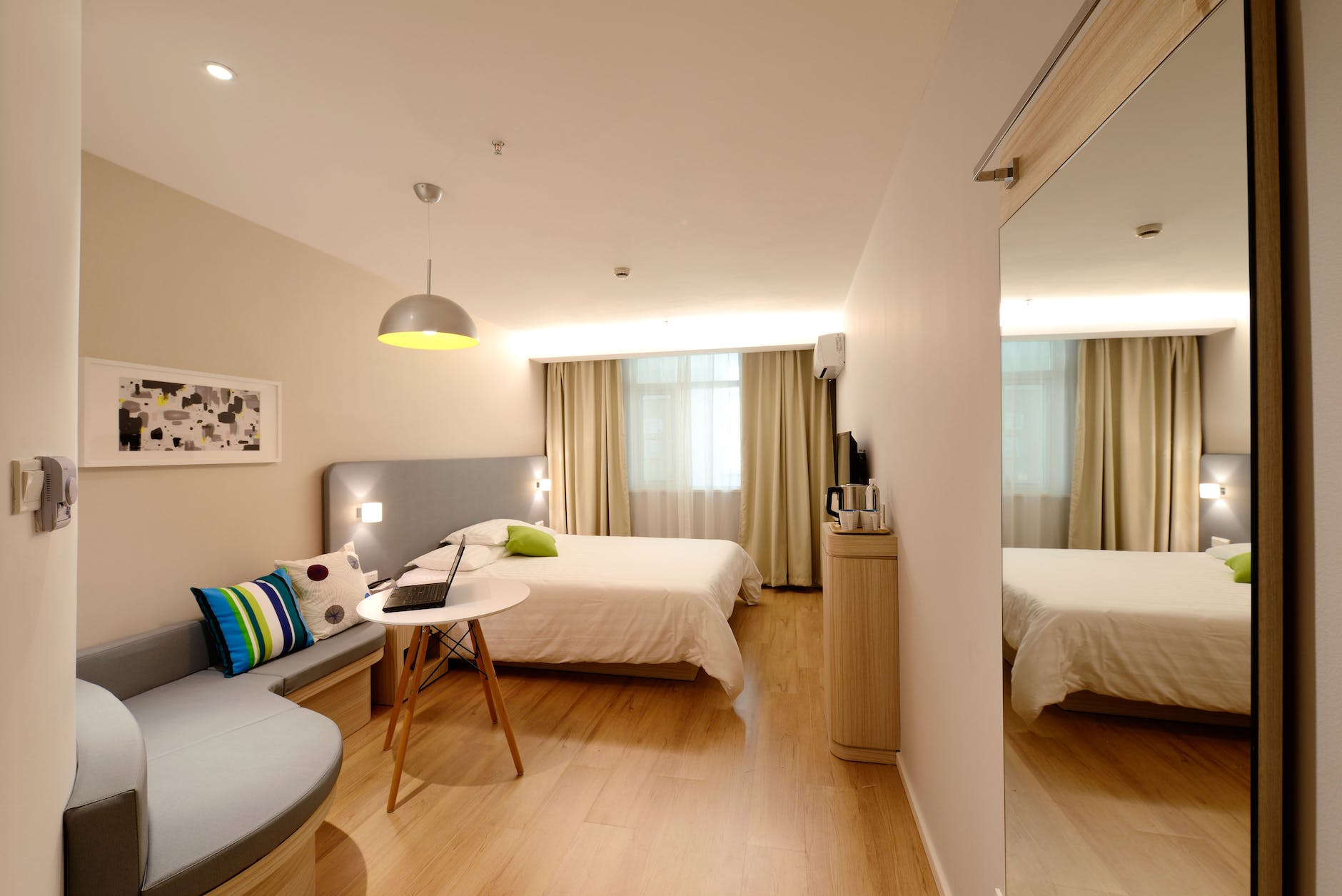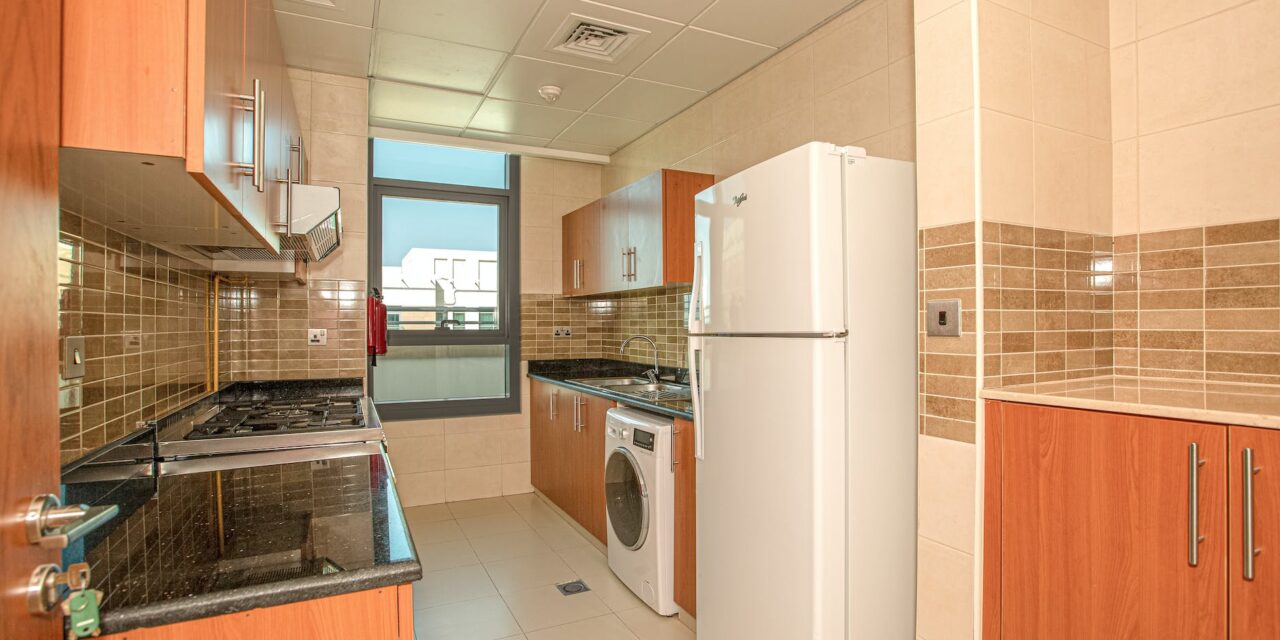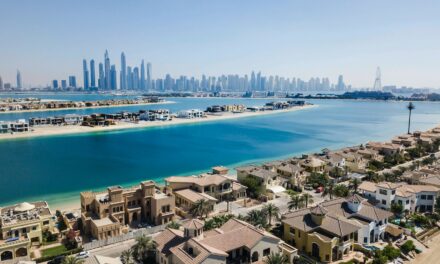Buying property in Dubai can be a lucrative investment, especially for those who are looking to diversify their portfolio or establish a permanent residence in the city. Dubai’s real estate market has been growing steadily over the years, with new developments and projects constantly being announced. This has attracted investors from all over the world, making Dubai one of the most sought-after real estate markets in the world.
However, buying property in Dubai can be a complex process, especially for those who are not familiar with the local laws and regulations. It is important for potential buyers to do their due diligence and research before making any decisions. This includes understanding the legal requirements for buying property in Dubai, such as obtaining a residency visa, and knowing the different types of properties available in the market, such as apartments, villas, and townhouses. Additionally, buyers should also be aware of the associated costs and fees, such as property registration fees and real estate agent commissions.
Buying Property in Dubai: An Overview
Dubai’s real estate market is known for its luxurious properties and attractive investment opportunities. With its world-class infrastructure, high standard of living, and tax-free environment, Dubai has become a popular destination for property buyers from around the world.
Dubai’s Real Estate Market
Dubai’s real estate market is diverse and offers a wide range of properties, from apartments and villas to townhouses and penthouses. The market is constantly evolving, with new developments and projects being launched regularly.
The demand for property in Dubai is driven by a variety of factors, including the city’s growing population, its status as a business hub, and its reputation as a tourist destination. The market is also influenced by global economic trends and geopolitical events.
Freehold and Leasehold
In Dubai, there are two types of property ownership: freehold and leasehold. Freehold ownership gives the buyer complete ownership of the property and the land it is built on. Leasehold ownership, on the other hand, gives the buyer the right to use the property for a specified period of time, usually 99 years.
Foreigners are allowed to buy freehold properties in designated areas of Dubai, while leasehold properties are available throughout the city. It is important to note that there are restrictions on buying property in certain areas, such as those designated for Emirati nationals only.
Procedures for Buying Property in Dubai
The procedures for buying property in Dubai are straightforward. The buyer and seller negotiate the terms of sale and sign a Memorandum of Understanding (MOU). A deposit, usually 10%, is paid, and the parties meet at the offices of the developer to apply for a No Objection Certificate (NOC) to sell the property.
Once the NOC is obtained, the buyer pays the remaining balance and the property is transferred to their name. It is important to work with a reputable real estate agent and hire a lawyer to ensure that all legal requirements are met and the transaction is completed smoothly.
In conclusion, buying property in Dubai offers a range of opportunities for investors and homebuyers alike. With its vibrant real estate market, attractive investment options, and streamlined procedures, Dubai is a great place to invest in property.
Finding the Right Property
When looking to buy property in Dubai, finding the right property is crucial. This section will cover the key factors to consider when searching for your ideal property.

Location
The location of a property is one of the most important factors to consider. Dubai has many different sub-markets, each offering something slightly different. Some popular areas include Dubai Marina, Downtown Dubai, Palm Jumeirah, and Emirates Hills. It is important to choose a location that suits your lifestyle and needs. Consider proximity to work, schools, shopping, and entertainment.
Amenities
When searching for a property in Dubai, it is important to consider the amenities offered. Many properties come with amenities such as swimming pools, gyms, and parking. Some properties also offer additional amenities such as concierge services, 24-hour security, and maintenance. It is important to consider which amenities are important to you and your lifestyle.
Layout
The layout of a property is also an important factor to consider. Dubai offers a range of properties with different layouts, including apartments, villas, and townhouses. It is important to consider the size of the property and the number of bedrooms and bathrooms. Additionally, consider the layout of the property and how it will suit your needs.
Quality
Finally, the quality of a property is important to consider. Dubai has strict building codes and regulations, so most properties are built to a high standard. However, it is important to consider the quality of the finishes, appliances, and overall construction. Consider hiring a professional inspector to assess the quality of the property before making an offer.
In summary, when searching for the right property in Dubai, it is important to consider the location, amenities, layout, and quality of the property. By taking these factors into account, you can find a property that suits your lifestyle and needs.
Legal Considerations
When it comes to buying property in Dubai, there are several legal considerations that buyers need to be aware of. These considerations include the Dubai Land Department, the Real Estate Regulatory Agency (RERA), the Memorandum of Understanding (MOU), and the Title Deed.
Dubai Land Department
The Dubai Land Department is responsible for overseeing and regulating all real estate transactions in Dubai. One of its key functions is to maintain a register of all real estate transactions in the Emirate. This means that any property transaction that takes place in Dubai must be registered with the Dubai Land Department.
Real Estate Regulatory Agency (RERA)
The Real Estate Regulatory Agency (RERA) is another important entity that oversees the real estate industry in Dubai. RERA is responsible for regulating and supervising all aspects of the real estate sector, including developers, brokers, and property management companies. It also provides guidance and support to buyers and sellers throughout the buying and selling process.
Memorandum of Understanding (MOU)
The Memorandum of Understanding (MOU) is a legal document that outlines the terms and conditions of a property sale. It is a binding agreement between the buyer and seller and is signed by both parties. The MOU includes details such as the purchase price, payment terms, and closing date. It is important to note that the MOU is not the same as the Title Deed.
Title Deed
The Title Deed is a legal document that proves ownership of a property. It is issued by the Dubai Land Department and contains details such as the property owner’s name, address, and the details of the property itself. It is important to note that the Title Deed is only issued once the property has been fully paid for.
In conclusion, understanding the legal considerations involved in buying property in Dubai is crucial for a successful transaction. By working with the Dubai Land Department, RERA, and other relevant entities, buyers and sellers can ensure that their transaction is legally sound and secure.
Financing Your Purchase
When buying property in Dubai, financing is an important aspect to consider. There are several factors that need to be taken into account when financing your purchase, including mortgages, property valuation, and bank mortgage arrangement fees.
Mortgage
Mortgages are a popular financing option for those looking to buy property in Dubai. However, it is important to note that there are certain restrictions on mortgage lending in Dubai. For example, expats can typically only borrow up to 75% of the property value, while UAE and GCC citizens can borrow up to 80%. Additionally, for off-plan purchases, the maximum amount that can be borrowed is 50% of the property value.
When applying for a mortgage in Dubai, it is important to have a good credit score and to provide all necessary documentation, including proof of income and employment. It is also advisable to shop around and compare mortgage rates and terms from different lenders to find the best option for your needs.
Property Valuation
Property valuation is an important part of the financing process when buying property in Dubai. This involves determining the current market value of the property, which will help to determine how much you can borrow and what interest rates you may be eligible for.
Property valuation is typically carried out by a professional valuer who will consider a range of factors, including the location, size, and condition of the property. It is important to note that the valuation may not always match the purchase price of the property, and lenders may only be willing to lend up to a certain percentage of the valuation.
Bank Mortgage Arrangement Fee
When taking out a mortgage in Dubai, it is important to be aware of any bank mortgage arrangement fees that may be charged. These fees can vary depending on the lender and the specific mortgage product, and may include application fees, processing fees, and valuation fees.
It is important to factor in these fees when considering the overall cost of your mortgage, and to compare fees from different lenders to find the most competitive option. Some lenders may also offer fee waivers or reduced fees for certain customers, such as those with high credit scores or existing banking relationships.
Overall, financing your purchase is an important aspect of buying property in Dubai. By understanding the mortgage options available, getting an accurate property valuation, and being aware of any bank mortgage arrangement fees, you can make an informed decision and find the best financing option for your needs.
Additional Costs and Fees
When buying a property in Dubai, it’s important to consider the additional costs and fees that come with the purchase. These fees can add up quickly, so it’s essential to be aware of them before making an offer. Below are some of the most common additional costs and fees associated with buying property in Dubai.
Maintenance Costs
Once you’ve purchased a property in Dubai, you’ll be responsible for its maintenance costs. These costs can include anything from routine maintenance to major repairs. It’s important to budget for these costs and keep some money aside for unexpected repairs. Some buildings may have a maintenance fee that covers these costs, but be sure to check with the property developer or real estate agent to confirm.
Estate Agent Fees
When buying a property in Dubai, you’ll typically work with a real estate agent. These agents charge a fee for their services, which is usually a percentage of the property’s sale price. The fee is typically split between the buyer and the seller, but it’s essential to confirm this with your agent before signing any contracts.
Property Registration Fee
The Dubai Land Department requires a property registration fee to be paid by the buyer. This fee is calculated as a percentage of the property’s sale price and is typically split equally between the buyer and the seller. The current fee is 4% of the property’s sale price. If the property is purchased with a bank loan, an additional fee of 0.25% of the total loan amount is required to register the mortgage against the property.
Property Valuation Fee
Before purchasing a property, it’s important to have it valued by a professional. This valuation fee is typically paid by the buyer and can vary depending on the property’s size and location. It’s essential to have an accurate valuation to ensure you’re not overpaying for the property.
In conclusion, when buying a property in Dubai, it’s crucial to consider the additional costs and fees that come with the purchase. These fees can add up quickly, so it’s essential to budget for them and keep some money aside for unexpected expenses. Be sure to work with a reputable real estate agent and confirm all fees and costs before signing any contracts.
Renting and Tenant Rights
Dubai is a popular destination for expats looking to rent or buy property. As a tenant, it is important to understand your rights and obligations to avoid any misunderstandings or disputes with your landlord.
Leasehold
In Dubai, most properties are sold on a leasehold basis. This means that the buyer owns the property for a set period of time, usually 99 years, after which ownership reverts back to the government. As a tenant, you will be renting the property from the owner or landlord who holds the leasehold title.
EJARI
EJARI is a system that was introduced by the Dubai Land Department to regulate the rental market and protect the rights of landlords and tenants. All rental agreements must be registered with EJARI to be legally binding. As a tenant, it is important to ensure that your rental agreement has been registered with EJARI to avoid any legal issues.
Tenant Rights
Dubai has specific laws in place to protect the rights of tenants. According to the property rent law in Dubai, a transfer of property ownership to a new owner will not impact the tenant’s right to occupy the property. Tenants are also entitled to a security deposit, which is usually 5% of the yearly rent for an unfurnished property and 10% for a furnished property.
Other tenant rights in Dubai include:
- The right to request repairs and maintenance from the landlord
- The right to peaceful enjoyment of the property
- The right to privacy
- The right to renew the lease at the end of the contract
In case of any disputes, tenants can file a complaint with the Dubai Land Department’s Rental Dispute Center.
It is important for tenants to understand their rights and obligations to avoid any legal issues or disputes with their landlord. By following the rules and regulations set by the Dubai Land Department, tenants can ensure a smooth and hassle-free renting experience in Dubai.
Investment Property
Investing in property is a great way to build wealth and generate income. Dubai’s real estate market is an attractive option for investors due to its higher rental yields than many other mature real estate markets. However, all investments carry risk, and there are many factors to consider before investing in Dubai’s property market to ensure you yield the highest possible returns.
Rental Yields
Rental yields in Dubai are among the highest in the world, with an average of 7% to 8% annually. This is due to the high demand for rental properties, especially in prime locations such as Downtown Dubai, Business Bay, and Jumeirah Village Circle. The rental yields can vary depending on the location, type of property, and market conditions.
Property Investment
Investing in property in Dubai can be a lucrative investment, but it is crucial to conduct thorough research before investing. It is recommended to seek professional advice from a reputable real estate agent, who can provide guidance on the best areas to invest in and the type of property to consider. It is also essential to consider the financing options available, such as mortgage rates and down payment requirements.
Market Conditions
Dubai’s real estate market has experienced fluctuations in recent years, with prices declining in some areas due to oversupply and economic conditions. However, the market has shown signs of recovery, with prices stabilizing and demand increasing in certain areas. It is essential to keep up-to-date with market conditions and trends to make informed investment decisions.
In conclusion, investing in property in Dubai can be a viable option for investors seeking higher rental yields. However, it is crucial to conduct thorough research, seek professional advice, and consider market conditions before making any investment decisions.
Residence Visa and Property Taxes
Residence Visa
Buying property in Dubai can be an attractive option for those who want to obtain a residency visa in the United Arab Emirates (UAE). An investor is eligible for a three-year Residence Visa subject to a minimum of AED 1 million (approximately US$250,000) property investment and is eligible for a five-year Residence Visa in return for a minimum of AED 5 million (approximately US$1.4m) property investment.
Owning a property in Dubai allows you to have your own visa, however, there are three types available that you could apply for, depending on certain criteria. The investor residence visa is one of them, and to be eligible for this visa, you will have to own a property worth at least Dh1 million. No local sponsorship is required, and during the visa’s validity period, a person can spend as much time in the UAE as they like and can experience hassle-free traveling to and from the UAE.
Property Taxes
When it comes to property taxes in Dubai, the good news is that there is no personal income tax or capital gains tax. However, there are some taxes that property owners need to be aware of. One of them is the Dubai Land Department (DLD) transfer fee, which is 4% of the property’s sale price. This fee is payable when the property is bought or sold.
Another tax that property owners need to be aware of is the annual property tax, or municipality fee, which is 5% of the property’s annual rental value. This fee is payable by the owner of the property and is used to fund public services such as roads, parks, and street lighting.
It is important to note that these taxes may change over time, so it is always a good idea to consult a tax expert or a real estate agent to get the most up-to-date information. Overall, while there are some taxes associated with owning property in Dubai, the tax system is relatively straightforward and easy to understand.
Negotiating Your Purchase
When buying property in Dubai, negotiating the purchase is an important step to ensure that you get the best deal possible. Here are some key factors to consider when negotiating your purchase:
No Objection Certificate
A No Objection Certificate (NOC) is a document that confirms that the seller has no objection to the transfer of ownership. It is required by law and must be obtained from the developer or the Dubai Land Department. The buyer should ensure that the NOC is obtained before making any payments or signing any contracts. The seller should be responsible for obtaining the NOC, but it is a good idea for the buyer to follow up and ensure that it has been obtained.
Proof of Residency
Proof of residency is required to purchase property in Dubai. Non-residents can purchase property in certain designated areas, but they must obtain a residency visa to do so. The buyer should ensure that they have the necessary documentation to prove their residency status before negotiating the purchase.
Traffic
Traffic can be a major concern when negotiating the purchase of property in Dubai. The buyer should consider the location of the property and the traffic in the area. They should also consider the accessibility of public transportation and the distance to major highways. The seller may be willing to negotiate on the price if traffic is a concern.
When negotiating the purchase of property in Dubai, the buyer should be prepared to ask questions and negotiate on the price. They should also be aware of the legal requirements and ensure that all necessary documentation is obtained before making any payments or signing any contracts. By taking these factors into consideration, the buyer can ensure that they get the best deal possible on their purchase.
Frequently Asked Questions
What are the things to know before buying property in Dubai?
Before buying property in Dubai, it is important to consider several factors such as the rental yields, demand in the area, future prospects, community amenities, and connectivity. According to Paul Christodoulou, the CEO of Aqua Properties, “Take all factors into consideration.”
Is buying property in Dubai a good investment?
Dubai has been a popular destination for property investment due to its growing economy, stable political environment, and favorable tax laws. However, like any investment, it is important to do thorough research and consider the risks involved before making a decision.
What is freehold property in Dubai?
Freehold property in Dubai refers to properties that can be owned by foreigners and are not subject to any time restrictions. This means that the owner has full rights to the property and can sell, lease or rent it out without any restrictions.
What is Dubai real estate?
Dubai real estate refers to the properties available for sale or rent in Dubai. It includes residential, commercial, and industrial properties.
Can a foreigner buy a house in Dubai?
Yes, foreigners can buy a house in Dubai. However, they are required to obtain a residence visa and a no-objection certificate (NOC) from the Dubai Land Department.
Why are houses in Dubai so cheap?
Houses in Dubai are not necessarily cheap, but they can be more affordable compared to other major cities in the world. This can be attributed to several factors such as a surplus of properties, a growing supply of new developments, and a favorable exchange rate. However, it is important to note that the prices can vary depending on the location, type, and size of the property.

























